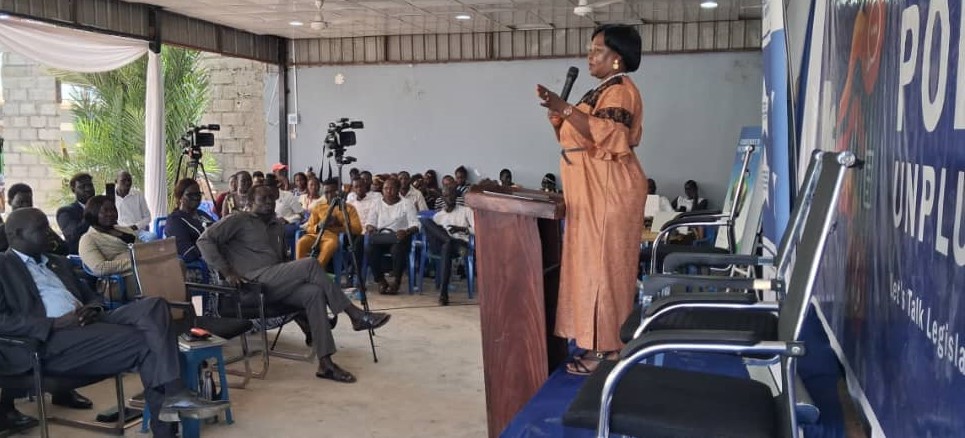A youth advocacy organization in South Sudan called Friday for the transitional government to urgently pass and implement long-stalled national policies aimed at creating opportunities for young people, arguing that inaction fuels growing frustration.
The appeal came during a public forum reviewing the status of several pending youth-focused bills and policies.
With over 70% of South Sudan’s population under the age of 30, the stakes are high. Young people face chronic unemployment, limited access to education and vocational training, and are often affected by the country’s persistent conflict and instability.
Florence Agiba, executive director of the youth-led group Markaz Al Salam, urged officials to move critical policies from “draft documents to implemented reality.”
“Drafting policies is important, but it is only the first step,” Agiba said at the event in Juba, dubbed “Policy Unplugged.” “Unless these policies are enacted, resourced, and implemented, they remain merely words — unable to create jobs, empower communities, or sustain peace.”
She cited the National Youth Development Policy, which awaits a second reading in the national parliament, and the Youth Development Enterprise Fund Bill, which is under review by the Ministry of Justice, as key measures that could transform young lives.
The forum brought together parliamentarians, government officials, development partners and young South Sudanese to discuss the legislation.
Motwakil Awol Mamour, deputy chairperson of the South Sudan National Youth Union, echoed the call for action. He said such laws are essential tools for empowerment, job creation and education.
“These laws are not just documents but tools to empower youth, create jobs, enhance education, and strengthen peace-building,” Mamour said. He appealed to lawmakers and the ministries of Health, Sport, and Justice to act with urgency.
Development partners pledged continued support.
Kenyi Emmanuel of Norwegian People’s Aid (NPA) said his organization has been working with youth groups to advance the National Youth Development Policy.
“We are now looking forward to seeing it move to the next stage,” Emmanuel said, adding that his group also supports other pending policies like the Student Support Fund.
In response, Mary Nawai, South Sudan’s minister for youth and sports, called on young people to prioritize education and unity.
“We are not here to listen to you but to talk to you as the youth of this country,” Nawai said. “We see the reflections of the South Sudan we all dream of — a nation of peace, prosperity, and many opportunities.”
She also spoke directly to young women, encouraging self-reliance. “Ladies, take it from me — struggle to make tea or start a small business. Don’t be deceived by moneyed men; tomorrow you will be the one to suffer,” she said.
Participants who spoke to Radio Tamazuj expressed hope that through sustained advocacy, South Sudan’s large youth population could be transformed into a driving force for national development.




